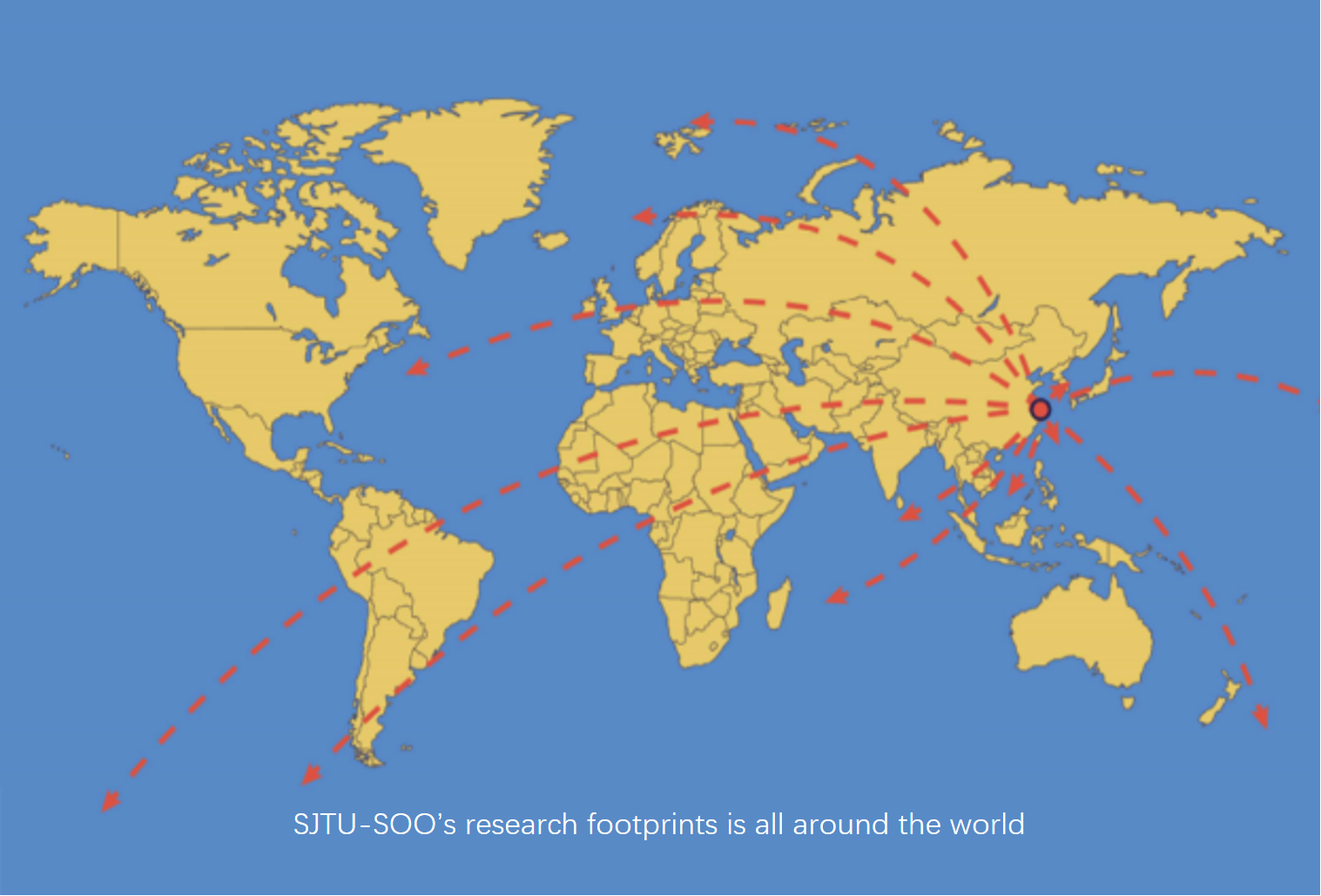

School of Oceanography at Shanghai Jiao Tong University (SJTU-SOO) relies on science and technology to enhance the discipline competitiveness. SJTU-SOO aims to solve problems in the ocean field, furthermore support the economic and society's sustainable development.
To explore and solve major scientific and technological issues such as ocean resource, environment and safety, climate change with world's frontier of ocean science and technology, SJTU-SOO presided several projects, such as "South China Sea Slope: Mesoscale Ecosystem Processes and Living Resource Sustainability (SCSS: MEPLRS)" from national Ministry of Science and Technology, "Coupled Advection-dispersion-transformation Processes of Yangtze River-plume(CAPYR)" from National Natural Science Foundation of China, key research program "Simulation and projection of global warming hiatus and regional climate response" from Ministry of Science and Technology, as well as major scientific research instrument development projects from National Natural Science Foundation of China, etc.
In response to national economic development needs, SJTU-SOO presided projects "The research and development of Work Type ROV's product technology" from the Ministry of Science and Technology, key research projects "The component modification and operational tool development of HAIMA ROV" and "Life cycle monitoring and intelligent management for a new generation of subsea production system with big data and cloud computing". SJTU-SOO has undertaken special fund project for scientific research in marine public welfare industry "Key technology R&D and application demonstration based on Real-time long-term observation network of offshore and adjacent nearshore area", and participated in national science and technology major projects from the Ministry of Science and Technology.
To expand international academic field, SJTU-SOO explores from offshore to deep sea and to the polar, presided over the Ministry of Natural Resources project "Habits and Distribution Survey of Antarctic Mid-Level Fish", China-Germany marine and polar scientific research cooperation project "Megacity's fingerprint in Chinese marginal seas: Pollutant fingerprints and dispersal-transformation", National Natural Science Foundation's international joint project "Collaborative Studies of Two Resource Ecosystems in Shelf, Slope and Oceanic Regions of the Norwegian and South-China Seas (STRESSOR)". In addition, SJTU-SOO participated in the National Natural Science Foundation's "Scientific investigation and experimental research of Yangtze Estuary in 2018 shared voyages plans" as the chief scientist unit.
SJTU-SOO is growing influence in the field of international ocean science and technology.






